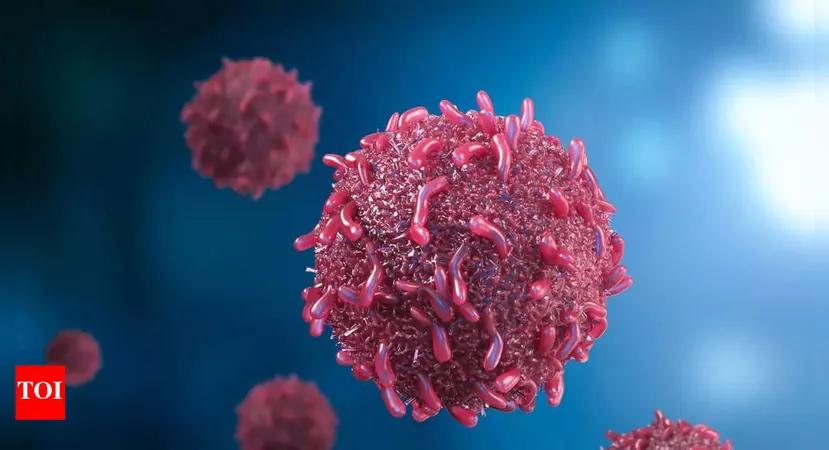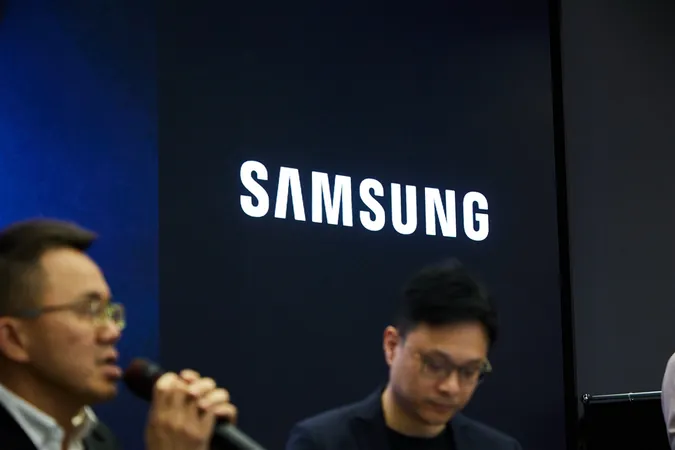
Unlocking Survival: How a Selfie Can Predict Cancer Outcomes with FaceAge AI
2025-05-15
Author: Mei
Revolutionizing Cancer Prognosis with AI
Imagine if a simple selfie could help predict your survival chances battling cancer. Enter FaceAge, an innovative AI tool that goes beyond basic age metrics, tapping into biological aging to revolutionize health assessments.
What is FaceAge?
FaceAge is a cutting-edge system developed by brilliant minds at Harvard Medical School and top research institutions. This AI marvel analyzes facial images to estimate a person’s biological age, a measure that reflects how aging affects the body by evaluating physiological markers rather than just counting years.
The Science Behind FaceAge
For its breakthrough performance, FaceAge was trained on a robust dataset of over 58,000 facial images and validated with 6,196 cancer patients across hospitals in the U.S. and Europe. It assesses deep structural changes in skin and tissue, using algorithms to detect clues like skin elasticity and muscle tone—key indicators of biological aging.
Predicting Cancer Survival Like Never Before
The latest research, published in The Lancet Digital Health, reveals that FaceAge can outperform traditional methods in predicting cancer survival. Patients were categorized into three groups: curative, thoracic cancer, and palliative. Across all categories, FaceAge’s predictions were spot-on, unveiling accelerated aging patterns that typical assessments often miss.
Key Findings: Why It Works
In the curative group, those with higher FaceAge scores had notably poorer survival rates, indicating that they biologically aged faster regardless of treatment efforts. For thoracic patients, FaceAge provided survival predictions that significantly enhanced prognosis accuracy, even when compared against comprehensive clinical data. Meanwhile, for those in palliative care, integrating FaceAge with established tools allowed for optimized care planning.
The Importance of Biological Age in Cancer Treatment
Biological age gives a clearer perspective on a patient’s health than chronological age, which often glosses over crucial differences based on lifestyle and genetics. This insight is vital for making informed treatment decisions that consider the physical resilience of each individual.
How FaceAge Could Transform Healthcare
Imagine a future where oncologists utilize AI-driven insights to tailor treatment options specifically for the biological condition of their patients. FaceAge's potential extends beyond individual care; it could redefine research parameters in clinical trials and improve monitoring capabilities for ongoing health assessments.
Ethical Considerations and Challenges
Despite its promise, FaceAge raises significant ethical and privacy concerns. The use of facial images for health assessments creates risks around data misuse—from employers to insurers. Furthermore, researchers have cautioned about potential biases affecting various demographics if not properly calibrated.
A Call for Careful Implementation
Moving forward, addressing privacy risks, ensuring fair algorithmic performance, and establishing regulatory frameworks will be essential. The promise of FaceAge is immense, but its future will depend on navigating these complexities with care.

 Brasil (PT)
Brasil (PT)
 Canada (EN)
Canada (EN)
 Chile (ES)
Chile (ES)
 Česko (CS)
Česko (CS)
 대한민국 (KO)
대한민국 (KO)
 España (ES)
España (ES)
 France (FR)
France (FR)
 Hong Kong (EN)
Hong Kong (EN)
 Italia (IT)
Italia (IT)
 日本 (JA)
日本 (JA)
 Magyarország (HU)
Magyarország (HU)
 Norge (NO)
Norge (NO)
 Polska (PL)
Polska (PL)
 Schweiz (DE)
Schweiz (DE)
 Singapore (EN)
Singapore (EN)
 Sverige (SV)
Sverige (SV)
 Suomi (FI)
Suomi (FI)
 Türkiye (TR)
Türkiye (TR)
 الإمارات العربية المتحدة (AR)
الإمارات العربية المتحدة (AR)